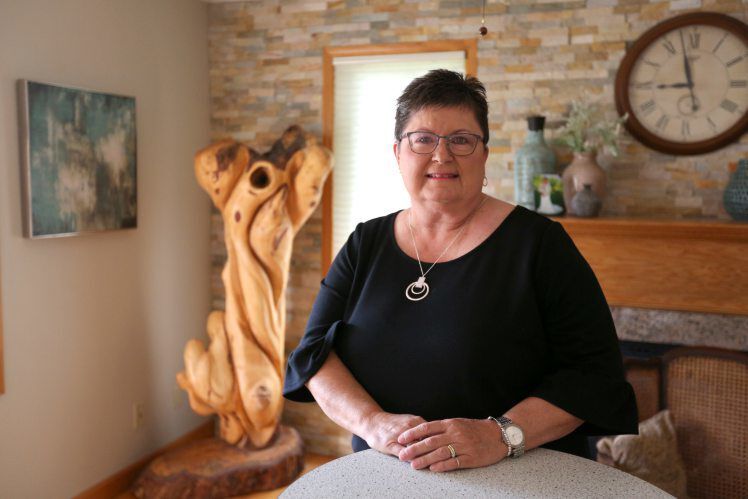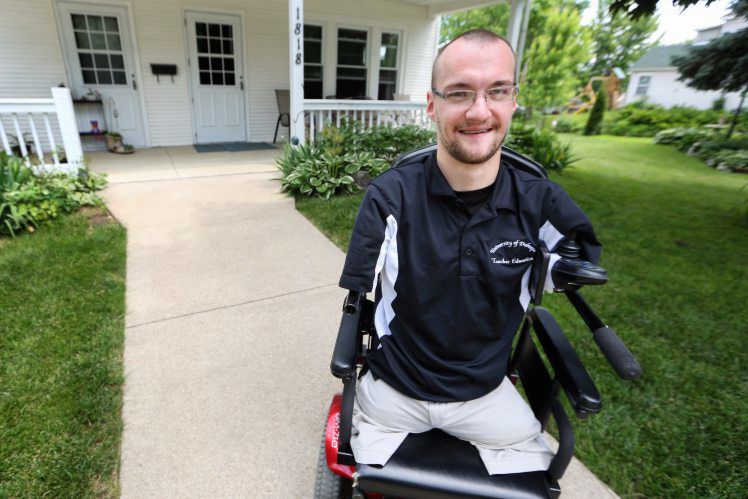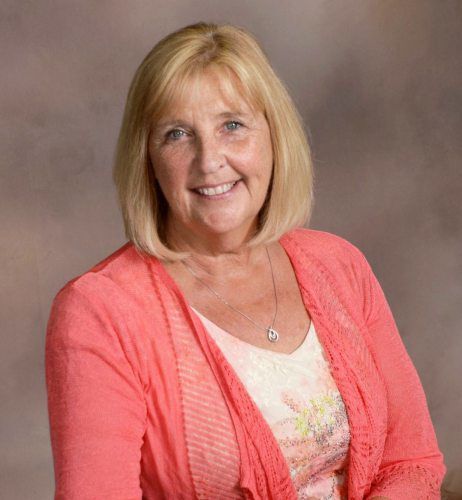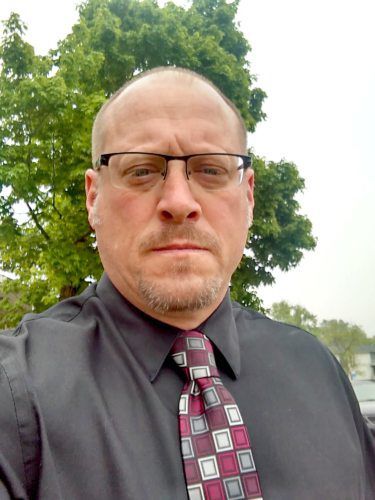Seventy-five years ago, there was a push by the federal government to educate the public about issues relating to disabilities and employment. In 1945, Congress enacted Public Law 176, which annually declared the first week of October as National Employ the Physically Handicapped Week.
In 1962, the word “physically” was removed to note the employment needs and contributions of individuals with all types of disabilities that can be physical, intellectual or mental health related. By 1988, Congress expanded the week to all of October and changed the name to National Disability Employment Awareness Month (NDEAM).
This year also marks the 30th anniversary of the Americans with Disabilities Act. The ADA is landmark civil rights legislation that was designed to ensure a more inclusive America where every person has the right to participate in all aspects of society, including employment according to the U.S. Department of Labor.
Helping to employ the disabled
In the Dubuque area, there are many organizations that work with the disabled, including Iowa Vocational Rehabilitation Services. Its mission is to provide expert, individualized services to Iowans with disabilities to achieve their independence through community employment and economic support. IVRS is celebrating its 100th anniversary this year.
“Services are individualized and we work to make a positive difference for every person, one person at a time. We are there to lead and respond to their unique needs so they can achieve their goals,” said Jeanne Helling, rehabilitation supervisor at IVRS.
Helling has worked for vocational rehab for 35 years, spending 24 years as a rehabilitation counselor and 11 in her current position. She has a disability and is able to relate to the job candidates she assists in finding a job.
“When I was six weeks old, I contracted chicken pox and have lived with a severe profound hearing impairment ever since. I began wearing hearing aids at age 4 and my hearing loss gradually worsened, and now I wear bi-lateral cochlear implants. My hearing has affected my job over the years, but my employer has been able to accommodate me with assistive technology and the assistance from my secretary taking notes for me,” Helling said.
IVRS focuses on job placement, training and job preparation services to assist the person in obtaining, retaining or advancing in a job. They provide assessment, vocational counseling and guidance, rehabilitation technology, training funds, job placement, job readiness training, job search – resume writing, mock interviewing, job follow-up, on-the-job training, self-employment, supported employment, transportation, benefits planning and assistive technology.
People who have a diagnosed physical, mental or learning condition that results in barriers to employment are candidates for help. Some of the examples include ADHD, autism, back/physical impairment, diabetes, kidney disease, epilepsy, deafness/hearing impairments, intellectual disability, learning disabilities, mental health diagnoses, neurological disorders, spinal cord injuries and traumatic brain injury.
“Statewide IVRS currently works with over 12,000 eligible individuals and thousands of high school students through our pre-employment transition services,” Helling said.
IVRS receives 78.7% of its funding through a grant from the U.S. Department of Education. In federal fiscal year 2019, the total amount of grant funds awarded was $27,140,102. The remainder was funded by state appropriations and other non-federal allowable sources.
Matching job seekers and businesses
“We have two customers: The individual job seekers and our business partners,” said Jason Rubel, rehabilitation counselor/business specialist at IVRS. “We build relationships with businesses by providing them with pre-screened applicants and providing support to businesses and individuals on the job. Our business relationships not only assist in placement, but also with career exploration through business tours, job shadows, informational interviews and externships. These tools allow both of our customers the chance to get to know one another and provide some idea to both the business and the potential applicant if the match is a fit.”
“One of my goals is to work with businesses to reduce the stigmas and bias of hiring the differently abled,” Rubel added. “People with disabilities want to work and they have something to prove. They are the most dependable, most loyal, and their happiness to have gotten the job is contagious.”
Lasting relationships have been built with many businesses throughout Dubuque and around Iowa.
“We are proud of the employers we work with,” Rubel said. “They have gone above and beyond to hire persons with disabilities and take the time to expand their diverse work culture.”
Some of the businesses that IVRS works with include the University of Dubuque, Hormel, Truck Country, Diamond Jo Casino, UnityPoint Health Finley Hospital, Prudential, Hy-Vee, Luther Manor, Burger King and Rainbow Oil.
“Some of my best employees have come from IVRS,” said Andrew Mettert, executive chef/food service at the University of Dubuque. “These employees want the opportunity, they don’t bring a lot of drama or personal problems and they are willing to do whatever we ask them to do. We can count on them and they don’t require a whole lot of coaching.”
Jobs in the University of Dubuque food service department include washing dishes, sweeping, mopping and cleaning. Some employees have worked into food prep positions depending on their skills.
“The human resources departments at the businesses where we’ve placed candidates find the value in the diversity of hiring a differently abled person. Business leaders talk to each other about the committed workers they’ve received through IVRS,” said Rubel, who has worked for the state for 19 years, including six years in his current position.
Both interest areas and aptitude are taken into account when helping job candidates to determine what type of job would be a good fit. They assist candidates in researching labor market information in their area of interest.
“We work with our job candidates to research any training that may be needed and can assist with the cost of such training. Externships are one of the tools we use for training and this tool allows extensive on-the-job-training while also allowing the business and the job candidate to work together and get to know one another for up to 320 hours of paid training with no cost or liability to the business,” Rubel said.
IVRS considers every job as a possibility for the disabled person as long as they have the skills and training to do the job. If needed, reasonable accommodations are put in place.
“We have placed job candidates from nurses, lawyers, production workers, auto/diesel mechanics, small business owners, college cafeteria workers, customer service, teachers, claims representatives, cashiers/stockers, social workers, over-the-road truckers, office workers and many others,” Helling said.
“I want to thank all the employers who have people with disabilities working for them. For many of them it is giving them hope and leading them to achieve their potential, working in your place of business alongside and as a part of your team of employees,” Helling added.
Two IVRS employment success stories
Jacob Hesselman, 26, has taught special education in the Dubuque Community School District for three years.
Born with about one-third of his arms and no legs, Hesselman began working with Rubel in 2010 when he was a junior in high school.
“If it wasn’t for vocational rehab and Jason, I wouldn’t be teaching,” Hesselman said. “IVRS helped with my college tuition and modifications for a vehicle which allows me to be mobile.”
IVRS also assisted him with an IPad and made recommendations for apps and technology such as Dragon Dictate, Notability and a Smart Pen. At the end of his freshman year of college, he wanted to learn how to drive. A Go Fund Me page was set up to help raise more than $58,000 to be used toward the purchase of a conversion van.
He graduated from the University of Dubuque with a degree in secondary education and chemistry and is attending Morningside College for an MA in special education and teaching.
Hesselman teaches sophomore reading, writing and math and co-teaches biology. He collaborates with staff and parents to develop individualized education plans and he applies different teaching methods to support the child’s specific needs.
For the past five years, Hesselman has coached sports. He started with football at Dubuque Senior High School in 2005 for three years, baseball as a varsity assistant at Dubuque Senior since April 2019 and wrestling at Roosevelt Middle School since November 2018.
Mark Hingtgen, 64, enjoys his job at Finley Hospital where he cleans stairways, elevators, takes the garbage out and helps with other tasks. He started working with Rubel more than a year ago when he moved back to the area.
Because he is intellectually disabled, Hingtgen needed assistance filling out job applications, gaining the confidence needed to hold a job and someone to job shadow with him to ensure he knows his responsibilities and is able to find his way around the hospital. Rubel hired a job coach from Goodwill to assist Hingtgen during his first week on the job to accomplish the last objective.
He’s been at Finley for about one year and works 20 to 25 hours per week.
“Everyone is so friendly and I have a lot of people telling me I’m doing a good job,” Hingtgen said. He added that everyone seems like family as there are many people around his age. “It’s much easier to go to work when I know my boss will take the time to respond to my questions and help me.”
Partnering with other agencies
Hills & Dales supports children and adults with intellectual, physical disabilities and medical challenges and autism spectrum diagnosis. Its mission is to “Build Meaningful Lives for each person we support and as an adult, we all want to be productive and have a job that we enjoy.”
It partners with various entities including Dubuque Community Schools, Department of Iowa Medicaid programs and IVRS to develop work opportunities for individuals with disabilities to explore work and interest areas.
“Annually we work with 10 to 12 individuals,” said Marilyn Althoff, CEO at Hills & Dales. She’s worked for the organization for 31 years and has been the CEO for 16.
“We work with various businesses within the community based on the interest that a person has. We’ve had some great outcomes for work including with Hy-Vee, and Miracle Car Wash and we also have a man who has his own business — JTFirestarters,” Althoff said.
Invisible disabilities
There are many hidden disabling conditions HR staff might not discover until after the person has been hired. Some of these conditions are learning disabilities, anxiety, depression or ADHD. These could be physical, such as back problems, rotator cuff issues, or a plethora of other limitations that are not visible.
Human resources departments don’t require someone with a hidden disability to disclose that disability/condition during the interview according to the ADA law.
Once hired, employees have an option to confidentially disclose a hidden disability so that accommodations can be made to enable the employee to do their job. If the employee chooses not to disclose their disability, accommodations won’t be made which could put the employee at a disadvantage in successfully completing their job responsibilities.
COVID-19 and disabled employees
The pandemic has brought the same employment issues to the disabled as with other employees.
“Like everyone, people with disabilities are feeling the effect of job loss and noticing a shortage of employers that are hiring,” Helling explained. “However, many who have been furloughed or laid off are being called back to work while others with underlying health conditions are not comfortable returning to the workforce.”
Businesses in some sectors are back to hiring while other sectors are very slow.
“This creates barriers for some of our job candidates depending on their interests. However, new opportunities have also resulted from the pandemic,” Helling said. “We have placed quite a few people as medical screeners at hospitals. Work from home jobs are becoming increasingly popular, which is great for some of our candidates with limited mobility or other issues.”






